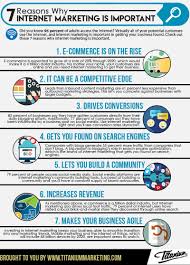The Impact of Digital Marketing in the Healthcare Industry
In today’s digital age, the healthcare industry is increasingly turning to digital marketing strategies to reach and engage with patients. Digital marketing offers a powerful platform for healthcare providers to connect with their target audience, build brand awareness, and drive patient engagement.
Benefits of Digital Marketing for Healthcare:
- Increased Reach: Digital marketing allows healthcare providers to reach a wider audience beyond their local community. Through targeted online campaigns, they can connect with patients seeking specific medical services or information.
- Enhanced Patient Engagement: Interactive websites, social media platforms, and email campaigns enable healthcare providers to engage with patients in real-time. This fosters better communication and strengthens the patient-provider relationship.
- Improved Brand Visibility: By utilising search engine optimisation (SEO) techniques and online advertising, healthcare organisations can enhance their visibility in search engine results pages. This helps them stand out among competitors and attract more patients.
- Educational Resources: Through blogs, videos, and infographics, healthcare providers can educate patients about various health conditions, treatments, and preventive care measures. This not only empowers patients but also positions the provider as a trusted source of information.
- Data-Driven Insights: Digital marketing tools provide valuable data on patient preferences, behaviour patterns, and campaign performance. Healthcare providers can use this data to tailor their marketing strategies for better results.
Challenges in Digital Marketing for Healthcare:
While digital marketing offers numerous benefits to the healthcare industry, it also presents challenges such as ensuring patient privacy and compliance with regulations like GDPR and HIPAA. Healthcare organisations must maintain strict data security measures when collecting patient information online.
In addition, navigating the complex landscape of online advertising platforms and social media regulations requires expertise to ensure that healthcare marketing campaigns are ethical and effective.
The Future of Digital Marketing in Healthcare
As technology continues to evolve, so will digital marketing strategies in the healthcare sector. Artificial intelligence (AI), virtual reality (VR), telemedicine platforms, and personalised messaging are expected to play a significant role in shaping the future of healthcare marketing.
Essential FAQs on Digital Marketing Strategies for Healthcare Professionals
- How to do digital marketing for medicine?
- How do you market to healthcare?
- What are some marketing strategies for healthcare?
- What is a healthcare marketing campaign?
- Why is digital marketing important in healthcare?
- How is marketing used in healthcare?
- How do you implement the 4 P’s of marketing in healthcare?
How to do digital marketing for medicine?
When it comes to digital marketing for medicine, a strategic approach is essential to effectively promote healthcare services and products online. Healthcare providers can start by creating a strong online presence through a user-friendly website that showcases their services and expertise. Utilising search engine optimisation (SEO) techniques can help improve visibility in search engine results, making it easier for patients to find relevant information. Engaging with patients through social media platforms, email campaigns, and educational content can also enhance patient engagement and build trust. It is crucial for healthcare organisations to adhere to data privacy regulations and maintain ethical standards when conducting digital marketing activities in the medical field.
How do you market to healthcare?
Marketing to the healthcare industry requires a strategic approach that takes into account the unique challenges and regulations of the sector. To market effectively to healthcare providers, it is essential to understand their specific needs and priorities. Tailoring your marketing messages to address key pain points, such as improving patient outcomes, increasing efficiency, or enhancing patient experience, can resonate with healthcare professionals. Utilising targeted digital marketing channels, such as search engine optimisation (SEO), social media advertising, email campaigns, and content marketing, can help reach healthcare audiences effectively. Building trust through transparent communication and providing valuable educational resources can also strengthen your marketing efforts in the healthcare sector.
What are some marketing strategies for healthcare?
When it comes to digital marketing for healthcare, there are several effective strategies that providers can implement to enhance their online presence and engage with patients. Some key marketing strategies include search engine optimisation (SEO) to improve visibility in online searches, content marketing through informative blogs and videos to educate patients, social media marketing to connect with a wider audience and share valuable health-related information, email marketing for personalised communication with patients, and online advertising campaigns targeted towards specific demographics or healthcare services. By utilising these strategies strategically, healthcare providers can effectively reach and engage with their target audience in the digital landscape.
What is a healthcare marketing campaign?
A healthcare marketing campaign is a strategic and coordinated effort by healthcare providers or organisations to promote their services, raise awareness about health issues, or engage with patients and the community. It involves using various digital marketing channels such as social media, email, search engine optimisation (SEO), and online advertising to deliver targeted messages to specific audiences. The goal of a healthcare marketing campaign is to drive patient engagement, increase brand visibility, and ultimately improve the overall health outcomes of individuals by providing valuable information and promoting healthcare services effectively.
Why is digital marketing important in healthcare?
In the healthcare industry, digital marketing plays a crucial role in reaching and engaging with patients in today’s digital-centric world. Digital marketing is important in healthcare for several reasons. Firstly, it enables healthcare providers to expand their reach beyond traditional boundaries, connecting with a wider audience seeking medical services or information online. Additionally, digital marketing enhances patient engagement through interactive platforms, facilitating real-time communication and fostering stronger relationships between patients and providers. Furthermore, digital marketing helps healthcare organisations increase their brand visibility, educate patients on health-related matters, and gain valuable insights through data-driven strategies for more effective patient outreach and care delivery. Overall, digital marketing is essential in healthcare for driving patient engagement, building brand awareness, and improving overall patient outcomes.
How is marketing used in healthcare?
Marketing plays a vital role in healthcare by helping organisations promote their services, engage with patients, and build trust within the community. In the healthcare industry, marketing is used to raise awareness about medical facilities, treatments, and preventive care options. Healthcare providers utilise various digital marketing strategies such as search engine optimisation (SEO), social media campaigns, email marketing, and content creation to reach a wider audience and educate patients about healthcare services. Effective marketing in healthcare focuses on delivering relevant and accurate information to patients while adhering to ethical standards and regulations to ensure patient privacy and confidentiality.
How do you implement the 4 P’s of marketing in healthcare?
Implementing the 4 P’s of marketing – Product, Price, Place, and Promotion – in the healthcare industry involves tailoring strategies to meet the unique needs of patients and providers. In healthcare, the “Product” refers to medical services, treatments, or health products offered. Providers must ensure that their services align with patient needs and expectations. Setting the right “Price” involves determining fair pricing structures that reflect the value of healthcare services while remaining competitive. The “Place” aspect focuses on making healthcare services accessible through various channels such as clinics, online platforms, or telemedicine. Lastly, effective “Promotion” in healthcare involves educating patients about available services through targeted campaigns that emphasise quality care and patient outcomes. By carefully integrating these 4 P’s into their marketing approach, healthcare providers can enhance patient engagement and drive positive health outcomes.


